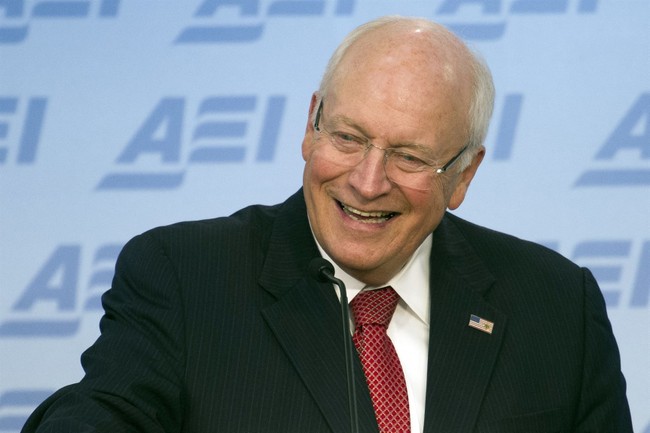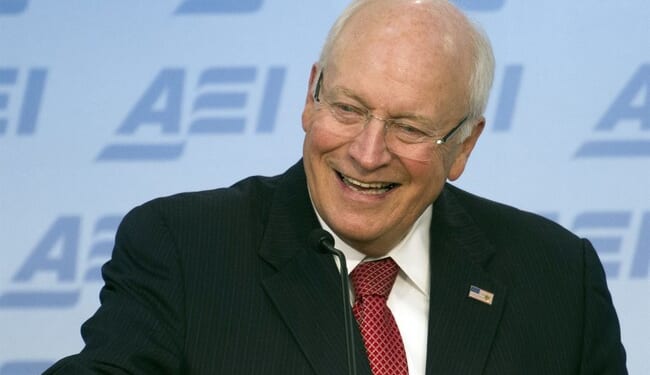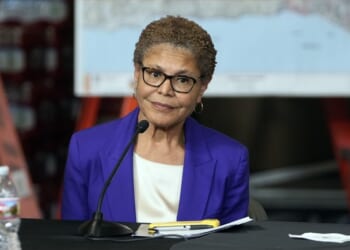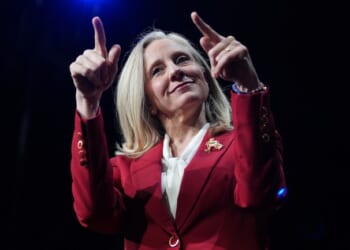
It’s the end of an era in American politics. And in a way, the passing of Dick Cheney not only closes his own chapter in US history — a chapter that stretched nearly 40 years of profound influence — but marks an end of the identities of the two major American political parties.
The Wall Street Journal offers a balanced and occasionally affectionate obituary for the first Vice President to make the office worth substantially more than “a bucket of warm spit,” as his predecessor John Nance Garner put it. Cheney’s legacy will mainly fall on the 2003 Iraq War, but the WSJ reminds us that Cheney’s influence on American policy goes deeper and broader than the media obsession with his last great project reveals:
Dick Cheney, who served four Republican presidents and whose role as an architect of the post-9/11 war on terror made him one of the most powerful—and controversial—U.S. vice presidents in history, died. He was 84.
He died due to complications of pneumonia and cardiac and vascular disease, his family said in a statement.
A national-security hawk with a penchant for working the levers of power, Cheney will be remembered for his relentless advocacy for the 2003 U.S. invasion of Iraq, a move that many Americans came to view as a strategic and humanitarian disaster. The war also had far-reaching policy and political consequences, helping turn the public against intervention and upheaving Republican politics.
Cheney continued to defend the Iraq invasion long after he left office in 2009. He often suggested the George W. Bush administration’s success in preventing more attacks after 9/11 had fed Americans’ skepticism of foreign entanglements.
He also continued to press his dark view of international threats and his interventionist leanings.
Cheney started his career in national politics as an advisor to Gerald Ford, then won a seat in the House and immediately became a part of leadership in the Reagan years. He focused on national security and the rebuilding of the US military in the 1980s, then became Defense Secretary under George H.W. Bush. Between the two Bush presidencies, Cheney went into the private sector and made a fortune with Halliburton, a leading supplier for the oil industry. Only when George W. Bush asked him to lead his running-mate search team did Cheney get back into electoral politics, and he accepted the position himself when Bush agreed to remake the office into a real partnership rather than a listless experience.
My friend and colleague Guy Benson offered his thoughts on Cheney’s passing:
The clip: pic.twitter.com/5yHWuZsoXM
— Guy Benson (@guypbenson) November 4, 2025
Cheney and Bush himself lived to see a profound shift in the identities of the two major American parties. I wrote about this yesterday to some extent, analyzing the impact of massive amounts of foreign money on the Left that turned a working-class party into a globalist, socialist party that has now almost entirely detached from the American electorate. Few if any Democrats of note have stuck with the party’s identity as a farm and labor party representing blue-collar Americans; John Fetterman may be alone (and I’ll have more on him in a later post). By the time Barack Obama won office the first time, the transition to a party more oriented toward the European cognoscenti than rural America and tradespeople had been completed; the socialsm emerged from the shadows over the next sixteen years.
Republicans also transformed, in part because of the failure of Cheney’s efforts to change the world through democratic reforms imposed by American arms. Referred to as “neoconservative” both then and now, it required the same kind of global engagement and massive resource expenditures, only to not just fail but also backfire in key ways. Cheney certainly didn’t intend the failures, and there were some significant successes too, such as the way in which our forward strategy against terrorists prevented more attacks on the American homeland, at least on the scale of 9/11. Cheney never tired of pointing that out, and with justification.
Still, the impossibility of that overall mission became clear, and with it the costs of failure. Put together with rising resentment over poorly managed “free trade” with China and other countries that got shrugged off as the costs for the net benefits of globalization, populists demanded a party that focused on the working class and their concerns, as well as a return to an America-centric policy set. That opened the door for Donald Trump, who flirted with a presidential run in 2011 only to commit four years later. He blew more than a dozen Republican politicians of the older order out of the water, because Trump spoke to voters who had found themselves marginalized when both parties embraced “globalization” over support for American workers.
In that process, long overdue, Cheney found himself the target not just of reasonable criticism, but also unreasonable attacks on his character and patriotism. That may have been unavoidable, but it was still unfortunate. Cheney was a man of the Cold War, whose vision was formed by the need tor global alliances and trade-offs to achieve larger goals. The world shifted and Cheney shifted with it in the era of Islamist terror, but he and others failed to recognize that Americans didn’t apply that Cold War filter on the world after the Berlin Wall fell and the Soviet Union collapsed. Cheney never let go of his belief in global ties, so much so that he ended up voting for Harris last year rather than Trump. In a way, that was Cheney being authentic to his values rather than the party that had transformed itself in another direction after he left office — and in some ways because of his own efforts.
Regardless, Dick Cheney worked tirelessly for both American security and freedom for most of his adult life. Perhaps at his passing, we can discuss the profound currents that flowed through and around his life, his successes and failures, not with bitterness but with an appreciation for his service.
Requiscat in pace, Mr. Vice President, and thank you for that service.
Editor’s Note: Do you enjoy conservative reporting that takes on the radical left and woke media? Support our work so that we can continue to bring you the truth.
Join Hot Air VIP, VIP Gold, or VIP Platinum, and use promo code POTUS47 to get 74% off your membership!








